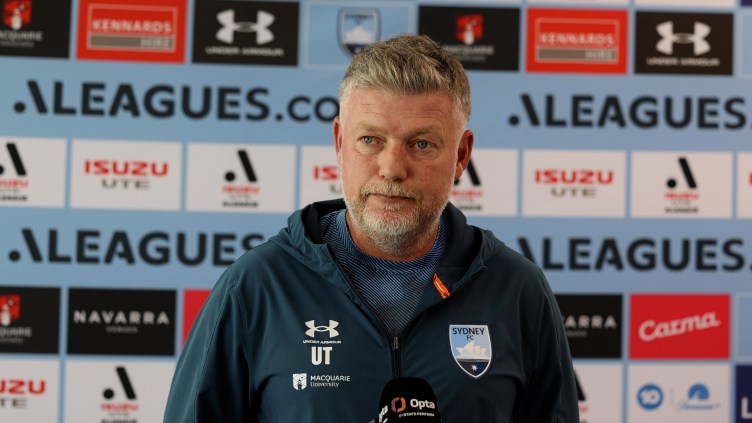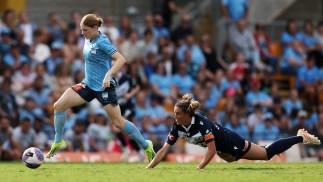Football has a frustrating history of ignoring tradition and too frequently changing clubs’ names. Surely we can build our brands without compromising our origins?
Northern Fury, Northern Rangers, Northern Tigers, Northern Demons. North of what?
Eastern United, Eastern Lions. East of what? Southern Stars, Southern Bulls. South of what?
Western Condors, Western Strikers, Western Pride, Western Knights. West of what?
These are all clubs playing in the various state-based competitions across Australia. If you want to know which state, or which city, or even which district, you have to do your research.
Club names have been a pet subject of mine forever. For a game which has a long, and proud history, we pay scant regard to those traditions.
A new president comes along, and on whim he can change the club name with a stroke of a pen. How do you build credibility, how do you build momentum, how do you build a narrative, by doing that? More on that later.
For a game which has a truly national footprint – arguably the only sport in Australia which does – we pay scant respect to geography. We need to celebrate the extent of the game’s reach. Not hide it, or diminish it.
Let’s get to the compass clubs. I like Rabieh Krayem. I have enormous regard for the passion, and drive, he has put behind his club. But I disagree with his view that he can’t afford to include a reference to Queensland in the club name. Which is why North Queensland Fury have reverted to the Northern Fury.
During the Fury’s short stint in the Hyundai A-League, former FFA chief executive Ben Buckley insisted the club acknowledge its origins. He forced the word Queensland into the title. Smart move.
If you’ve spent any time in that part of the world, you know how ingrained the “NQ” moniker is in daily conversation. North Queenslanders are so parochial they’ve been agitating for a separate state for more than a century. Why would you ignore that?
Krayem’s argument is that the Fury want to be the club of northern Australia, not North Queensland. The plan to play some games in Darwin, which was never realised during the A-League era, remains on the table.
The inference being people in the Northern Territory won’t embrace a club that comes from Queensland. As if the fact the Fury are based in Townsville can somehow be kept a secret by using an amorphous title, which is supposed to mean all things to all people. Instead, in my view, the name is virtually meaningless.
Remember the Football Kingz in the old NSL? Possibly the worst club name of the lot, and that’s saying something. The owners didn’t want to include Auckland in the title because they felt it would upset Wellingtonians, or Cantabrians.
There were grandiose ideas to be the flagship of the nation, which is why the club morphed into New Zealand Knights at the start of the Hyundai A-League. Doesn’t the fact that both clubs are now consigned to the dustbin of history tell you something?
Marketing spin has a short shelf life. Putting down roots and celebrating them gives you a much better chance of longevity. How else do you explain the fact that Wellington Phoenix have since played games to big crowds in Christchurch and Auckland? Where was the consumer resistance to their name? There wasn’t.
If the Fury do the right thing by the football community of Darwin they’ll pull a crowd, and they’ll be proudly flying the flag of NQ in the process. Everyone wins.
For the same reasons Western Pride should be proud they come from Ipswich – one of the traditional heartlands of Queensland football – or Northern Tigers should announce themselves as the club of Sydney’s talent-rich Ku-Ring-Gai region – or Southern Stars should respect their origins in the City of Kingston in Melbourne’s south-east. And so on.
Parochialism, and tribalism, remain one of football’s greatest assets. Look what Western Sydney Wanderers have achieved by acknowledging the history, and the geography, of their region.
Take it a step further. If you accept the the marketing spin, shouldn’t Arsenal be renamed North London FC, or Corinthians be re-badged Sporting Sao Paolo, or Juventus called Torino Calcio? Sacrilege?
Absolutely. If you can become a global brand without compromising your origins, why can’t you become a national, or regional, or even suburban, brand here in Australia by following the same principles? Of course you can.
Which brings me back to the history of our game. History which creates momentum, and opportunity. In Australia, we’ve been too quick to discard it. The smart clubs are trying to repair the damage.
There’s an argument, for instance, that APIA-Leichhardt are effectively a continuim of Leichhardt-Annandale, founded 1910. Or Granville Rage have evolved from Granville Magpies, formed 1882. Being more than 100 years old, instead of 50, or even 30, gives you clout, and respect.
The mind-numbing regularity in which clubs have changed names over the decades has left a confusing trail. I’ve actually seen a flow chart that tries to trace what’s become of Brunswick Juventus, who were national champions as recently as 1985.
It was a maze, and from what I could understand nobody could come up with an answer. A lineage disappeared without trace, partly because the club name became an alphabet soup.
Hopefully, as the NPL model entrenches itself across the country, the FFA will be able to redress the imbalance. To follow the breadcrumbs back to the start. To insist clubs recognise their geography. To clean up the mess.
If you don’t think a name has a value, consider the case of the Brisbane Lions. In 1996, the AFL wanted to kill two birds with one stone – close down Fitzroy Lions and shift Brisbane Bears from the Gold Coast. They desperately wanted to base the merged team at the Gabba and call it Brisbane Lions.
Trouble was the name, and the intellectual property rights, belonged to the former NSL club of the same name. So the AFL heavies arrived at Richlands with their QCs, and after a period of intense bartering a six-figure sum was eventually paid to takeover the name.
At the time, it seemed like a good deal for a football club, which, by that stage, had been demoted to the Queensland state league. In fact the windfall paid almost half the budget for the 1997 season. But you’d hope the same decision wouldn’t be made today. The AFL clearly values a brand. It’s time football did the same.



